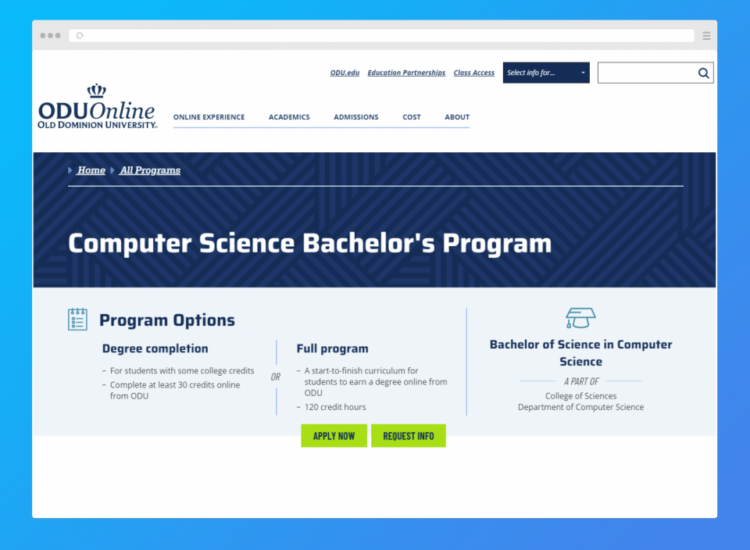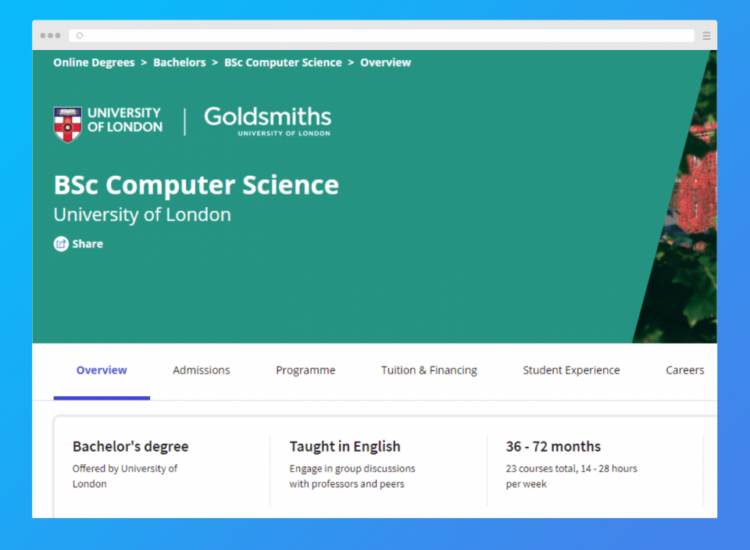Earning potential for K-12 teachers often plateaus, highlighting the need for professional development. A master’s degree in education offers a pathway to higher salaries and leadership roles. The Bureau of Labor Statistics shows a significant income difference between teachers with bachelor’s and master’s degrees, especially in high-cost areas. Finding the best masters in education programs requires careful consideration of program cost, accreditation, and specialization options, ultimately impacting career advancement.
Toc
- 1. Financial Benefits and Career Advancement with a Master’s in Education
- 2. Choosing the Right Specialization for Your Career Goals
- 3. Related articles 01:
- 4. Emerging Trends in Education and Their Impact on Master’s Programs
- 5. Top Online Masters in Education Programs: Flexibility and Convenience
- 6. Finding the Best Masters in Education Programs in California and New York
- 7. Related articles 02:
- 8. Funding Your Master’s Degree: Scholarships, Grants, and Financial Aid
- 9. One-Year Online Master’s in Education Programs: Accelerated Learning Options
- 10. Addressing Common Questions About Online Master’s Programs
- 11. Success Stories: Real-World Impact of Advanced Education
- 12. Conclusion
Financial Benefits and Career Advancement with a Master’s in Education

Investing in a master’s degree in education can yield remarkable financial benefits and career advancement opportunities. For many educators, the prospect of increased earnings is a significant motivator.
Salary Increases with a Master’s Degree
Teachers with master’s degrees consistently earn significantly more than their bachelor’s-degree-holding counterparts. According to the Bureau of Labor Statistics (BLS), the salary difference can exceed $20,000 annually in states like California and New York. In California, the average salary for teachers with a master’s degree is around $82,000, compared to $62,000 for those with just a bachelor’s degree. Similarly, in New York, the average salary jumps from $65,000 to approximately $85,000 with a master’s degree.
Research also shows a correlation between advanced degrees and teacher retention rates. Studies indicate that higher salaries resulting from a master’s degree can lead to lower turnover rates in schools, benefitting both individual teachers and school systems by fostering stability within educational environments. This highlights the dual advantage of earning a master’s degree: it not only enhances the educator’s financial prospects but also contributes positively to the teaching workforce.
Furthermore, the salary increase can vary based on factors such as geographic location, years of experience, and specialization. For example, teachers specializing in areas like special education or curriculum development often see even greater salary bumps. Many educators have reported transformative salary increases following their completion of a master’s degree in education, underscoring the value of this advanced credential.
Career Advancement Opportunities
A master’s degree in education can also unlock numerous career paths beyond traditional classroom teaching. With an M.Ed., educators can transition into roles such as school principal, instructional coordinator, or district administrator. These positions often come with increased responsibilities and the opportunity to influence educational policies and practices.
For instance, the median annual salary for school principals is approximately $103,460, which is significantly higher than that of classroom teachers. Roles such as curriculum coordinators or instructional coaches are in high demand, emphasizing the need for advanced qualifications in today’s educational landscape.
Educators may also consider positions like educational consultants, who work with schools and districts to improve educational practices, or instructional designers, who create engaging learning experiences for students. The demand for these roles highlights the expanding career opportunities available to individuals with a master’s degree in education.
Additional Career Paths
Beyond the roles mentioned, there are various other career paths available to educators with a master’s degree. For example, educational consultants work with schools and districts to improve educational practices and policies. They may offer professional development for teachers, conduct assessments, and provide recommendations for curriculum improvements.
Additionally, instructional designers are increasingly sought after as educational institutions focus on creating effective online and blended learning experiences. These professionals develop educational materials and learning experiences that are engaging and effective for diverse student populations.
Another rewarding path is in educational policy, where individuals can work for government agencies, non-profits, or advocacy organizations. These roles often involve analyzing and shaping educational policies that impact schools and communities.
Choosing the Right Specialization for Your Career Goals
Selecting the appropriate specialization is crucial for aligning your master’s degree with your career aspirations. Different specializations cater to various interests and professional paths.
Special Education: Meeting Diverse Needs
The demand for special education teachers is growing as awareness of diverse learning needs increases. Pursuing a specialization in special education equips educators with the skills to support students with disabilities and learning differences. Coursework typically covers behavior management, individualized education plans (IEPs), and inclusive teaching strategies.
Graduates specializing in special education often find fulfilling roles as resource room teachers, special education coordinators, or consultants, enabling them to make a significant impact on students’ lives. Other potential job titles include Behavior Interventionist and Assistive Technology Specialist, which reflect the diverse needs of students requiring specialized support.
Curriculum Development: Crafting Engaging Learning Experiences
For those interested in improving educational outcomes through effective curriculum design, a specialization in curriculum development may be the ideal choice. This area focuses on creating engaging and effective curricula that align with state standards and meet diverse student needs.
Educators trained in curriculum development are highly sought after in various educational settings. They often take on roles such as curriculum coordinators or instructional designers, where they can influence the educational materials used in classrooms. Additionally, opportunities for positions such as Educational Program Director or Content Specialist are prevalent, showcasing the versatility of this specialization.
Educational Technology: Embracing Digital Learning
In today’s digital age, integrating technology into education is essential. A specialization in educational technology prepares teachers to utilize digital tools effectively, enhancing student engagement and learning outcomes. Educators learn to incorporate various technologies into their lesson plans, creating dynamic learning environments that cater to different learning styles.
With the growing demand for technology-savvy educators, graduates of educational technology programs can pursue roles in EdTech companies, become technology coordinators, or lead initiatives to integrate technology in schools. Positions like Digital Learning Specialist or E-Learning Developer are increasingly common as educational institutions embrace technology in their curriculum.
1. https://minidanang.com/mmoga-cheapest-online-masters-degree-programs-in-2024/
4. https://minidanang.com/your-guide-to-online-mha-degree-programs-accelerate-your-healthcare-career/
5. https://minidanang.com/mmoga-level-up-your-career-with-online-business-certificate-programs/
Educational Leadership: Navigating Administrative Roles
For educators aspiring to take on leadership positions, specializing in educational leadership is an excellent choice. This specialization prepares teachers to navigate the complexities of school administration, focusing on topics such as educational policy, finance, and leadership strategies.
Graduates with a specialization in educational leadership can become school principals, district administrators, or educational consultants, allowing them to influence educational practices at various levels. Roles such as Director of Curriculum and Instruction or Chief Academic Officer highlight the leadership potential within this field.
Other Relevant Specializations
In addition to the specializations mentioned, several other areas of focus can enhance your career prospects. For example, a specialization in adult education can prepare educators to work with adult learners in community colleges, vocational schools, and corporate training programs.
Another growing field is early childhood education, where educators learn about the unique needs of young learners and how to create effective learning environments for them. This specialization can lead to roles in preschools, early intervention programs, and educational policy advocacy for early childhood education.
Counterpoint Consideration
While pursuing a specialization can provide clear career paths, it may also limit flexibility in some cases. Educators should weigh their desire for a specific role against the potential benefits of a broader skill set that may open up additional opportunities. Furthermore, the financial investment in a master’s degree requires time and resources, which may be a barrier for some educators. Alternatives like professional development workshops or certifications can provide specific skills at a lower cost, ensuring that educators can still advance their careers without a full degree program.
Emerging Trends in Education and Their Impact on Master’s Programs
The education landscape is continually evolving, and recent trends have influenced the design and delivery of master’s programs. The increasing demand for educators skilled in online and hybrid teaching methodologies, largely due to the pandemic’s impact, has reshaped educational offerings. Institutions are now emphasizing courses that equip teachers with the necessary skills to engage students in a digital environment effectively.
Moreover, there is a growing focus on social-emotional learning (SEL) within curricula. Educational programs are adapting to include training that enables teachers to address the emotional and social needs of their students, fostering a more holistic approach to education. Organizations such as the Collaborative for Academic, Social, and Emotional Learning (CASEL) are leading initiatives to promote SEL integration in educational settings, influencing the content of master’s programs across the country.
Top Online Masters in Education Programs: Flexibility and Convenience
The rise of online master’s programs has revolutionized the education landscape, providing flexibility and convenience for working teachers. These programs allow educators to balance their studies with their teaching responsibilities, offering the freedom to learn at their own pace.
Benefits of Online Learning for Working Professionals
Online master’s programs are particularly beneficial for busy educators who may not have the time to commit to a traditional on-campus program. Many online programs feature asynchronous classes, enabling teachers to access course materials and complete assignments when it fits their schedules. This flexibility allows educators to enhance their qualifications without sacrificing their teaching responsibilities.
Furthermore, online programs often provide a wealth of resources, including virtual classrooms, discussion forums, and access to faculty support. These resources can enhance the overall learning experience and provide opportunities for networking with peers and educators from diverse backgrounds.
Comparative Analysis of Leading Online M.Ed. Programs
When selecting an online master’s program, it is essential to consider various factors, including cost, accreditation, and available specializations. The following table highlights some of the best online master’s in education programs currently available:
| University | Degrees Offered | Cost per Credit | Required Credits | Program Length | Accreditation |
|---|---|---|---|---|---|
| Arizona State University | M.Ed., MA | $692 | 30-47 | 18-24 months | CAEP |
| Eastern Washington University | M.Ed., MM | $300 | 49-50 | 12-16 months | CAEP |
| Tulane University | M.Ed. | $1,210 | 30-33 | 24 months | CAEP |
| University of Illinois Urbana-Champaign | Ed.M. | $510 | 32 | 18-24 months | CAEP |
| Western Governors University | MA, MS | $3,075 (per term) | N/A | 12-36 months | CAEP |
This comparison showcases the diversity in offerings among the best master’s in education programs, with options catering to various financial and academic needs. Programs with positive reviews on platforms like Reddit can provide insights into the experiences of current and former students, helping prospective candidates make informed decisions. For instance, discussions about the best master’s in education programs on Reddit can reveal valuable information about the quality and reputation of specific programs.
Importance of Accreditation
When selecting an online M.Ed. program, prioritizing accreditation is crucial. Accredited institutions meet specific academic standards that ensure the quality of education provided. In the United States, the Council for the Accreditation of Educator Preparation (CAEP) and the Association for Advancing Quality in Educator Preparation (AAQEP) are the primary accrediting bodies for education programs. Attending an accredited institution not only enhances the credibility of your degree but also ensures eligibility for federal financial aid.
Accreditation plays a vital role in ensuring that the education you receive meets the necessary standards for quality and rigor. Graduating from an accredited program can enhance your employability and open doors to more advanced positions within the education sector.
Finding the Best Masters in Education Programs in California and New York
California and New York are home to some of the best master’s in education programs in the USA. Each state offers unique opportunities and programs tailored to meet the needs of educators.
Spotlight on California
California boasts a variety of reputable master’s programs, including those at institutions like Stanford University and the University of Southern California. These programs are known for their rigorous curriculum and emphasis on preparing educators for leadership roles.
Unique Aspects of California Programs
- Stanford University: Offers an M.A. in Education with a focus on policy and leadership. The program is known for its strong emphasis on research and innovation in education.
- University of Southern California: Provides a comprehensive M.Ed. program with specializations in educational psychology and instructional design. USC’s program is designed to cater to the needs of working professionals.
For specific licensing requirements in California, educators should consult the California Commission on Teacher Credentialing (CTC) for the most up-to-date information. Understanding the state-specific requirements is essential for ensuring compliance and eligibility for licensure.
Spotlight on New York
New York also features a range of excellent master’s programs, with institutions like Columbia University and New York University leading the way.
Unique Aspects of New York Programs
1. https://minidanang.com/mmoga-cheapest-online-masters-degree-programs-in-2024/
4. https://minidanang.com/mmoga-level-up-your-career-with-online-business-certificate-programs/
5. https://minidanang.com/your-guide-to-online-mha-degree-programs-accelerate-your-healthcare-career/
- Columbia University: Offers an M.Ed. program with a focus on educational leadership and policy. This program prepares educators for roles in school administration and policy-making.
- New York University: Provides a diverse range of specializations, including special education and educational technology. NYU is known for its strong faculty and commitment to preparing educators for the challenges of modern education.
Educators in New York should be aware of the New York State Education Department’s licensing requirements to ensure they meet all necessary criteria. Additionally, the New York State Teacher Certification Examinations (NYSTCE) may be required for licensure.
Funding Your Master’s Degree: Scholarships, Grants, and Financial Aid
Pursuing a master’s degree in education can be financially challenging, but various funding options are available to help ease the burden.
Exploring Funding Options
- Scholarships: Many universities offer scholarships specifically for education students. Researching and applying for these opportunities can significantly reduce tuition costs.
- Grants: Federal and state grants may be available for eligible candidates. The Free Application for Federal Student Aid (FAFSA) is a valuable resource for identifying potential grants.
- Employer Tuition Reimbursement: Some school districts offer tuition reimbursement programs for teachers pursuing advanced degrees. Check with your employer to see if this option is available.
- Federal Financial Aid: Applying for federal financial aid through FAFSA can provide access to loans and grants for eligible candidates.
By exploring these funding options, educators can alleviate some of the financial burden associated with pursuing a master’s degree in education.
Additional Resources for Financial Aid
Several organizations and websites provide valuable information about scholarships and grants available to education students. Websites like Fastweb, College Board, and the American Association of Colleges for Teacher Education (AACTE) offer searchable databases for scholarships and grants specifically targeted toward education majors.
Additionally, some non-profit organizations focus on supporting teachers and educators through financial aid programs. Researching these resources can lead to opportunities that may not be widely advertised.
One-Year Online Master’s in Education Programs: Accelerated Learning Options
For educators eager to earn their degree quickly, one-year online master’s in education programs provide an accelerated path to graduation. These programs are designed for dedicated students who can commit to an intensive course load.
Advantages and Disadvantages of Accelerated Programs
Advantages:
- Quick Completion: Accelerated programs allow students to finish their degree in as little as one year, making it an attractive option for those looking to advance their careers swiftly.
- Focused Curriculum: These programs often have a streamlined curriculum that covers essential topics in a condensed timeframe. This allows students to gain the necessary knowledge and skills without the extended commitment of a traditional program.
Disadvantages:
- Intensive Workload: The accelerated pace can be demanding, requiring a significant time commitment and strong time management skills. Students may find it challenging to balance coursework with professional responsibilities.
- Limited Flexibility: Some accelerated programs may offer less flexibility in scheduling compared to traditional online programs. It’s important for prospective students to assess their personal circumstances and determine if they can manage the intensity of an accelerated program.
Examples of Universities Offering Accelerated Programs
- University of Florida: Offers a one-year online M.Ed. in Curriculum and Instruction. This program is designed for educators looking to enhance their teaching practices and leadership skills quickly.
- George Washington University: Provides a one-year online M.Ed. in Educational Leadership. This program focuses on preparing educators for leadership roles within schools and districts.
Educators considering an accelerated program should carefully evaluate their personal circumstances and readiness for an intensive learning experience. It’s essential to ensure that the program aligns with your career goals and provides the necessary support for success.
Addressing Common Questions About Online Master’s Programs
As you consider pursuing a master’s degree in education, you may have several questions regarding the process and requirements. Here are some common inquiries:
Duration and Flexibility of Online Programs
Many prospective students often wonder how long it takes to complete an online master’s in education. On average, full-time students can complete their degree in one to two years, while part-time students may take three to four years. The availability of one-year online master’s in education programs provides an accelerated option for those looking to earn their degree quickly.
Cost Considerations
The cost of obtaining a master’s degree in education varies widely based on the institution and program. On average, tuition for online programs can range from $7,000 to $20,000 per year. However, prospective students should consider additional costs, such as textbooks and course materials, when budgeting for their education.
Accreditation Matters
The significance of attending an accredited program cannot be overstated. Accreditation ensures that the education provided meets established standards of quality. Graduating from an accredited program not only enhances the degree’s value but also ensures eligibility for federal financial aid and future employment opportunities.
Career Prospects Post-Graduation
Many educators seek a master’s degree to enhance their career prospects. With an advanced degree, educators can qualify for higher-paying roles and leadership positions. Moreover, the demand for skilled educators continues to grow, making a master’s degree a valuable asset in today’s job market.
Success Stories: Real-World Impact of Advanced Education
The journey of educators pursuing a master’s degree is often marked by significant transformations. Many teachers who have completed online M.Ed. programs report substantial career advancement and salary increases. These success stories highlight the value of advanced education in achieving professional goals.
For instance, one teacher shared how earning an M.Ed. in educational leadership allowed her to transition from a classroom teacher to a school principal, where she could influence policy and implement positive changes within her school community. Similarly, another educator noted that specializing in curriculum development enabled her to lead district-wide initiatives that improved educational outcomes for students across multiple schools.
These testimonials serve as powerful reminders of the positive impact that a master’s degree in education can have on both individual careers and the broader educational landscape. The stories of these educators underscore the importance of pursuing advanced education to achieve personal and professional goals.
Conclusion
Investing in a master’s in education is a significant step toward career advancement and increased earning potential for K-12 teachers. The best master’s in education programs offer a wealth of opportunities for professional growth, enhanced pedagogical skills, and increased earning potential. By carefully considering your career goals, researching the best programs available, and securing appropriate funding, you can significantly enhance your teaching career and make a lasting impact on the lives of your students.
Start your research today by exploring the programs highlighted in this article and begin your journey towards a rewarding future in education. By taking the time to understand your options, assess your career aspirations, and leverage the resources available to you, you can navigate the complexities of pursuing a master’s degree in education. Whether you choose to specialize in special education, curriculum development, educational technology, or leadership, the right program can set you on the path to success. Your commitment to lifelong learning will not only benefit you but also enrich the educational experiences of your students for years to come.










